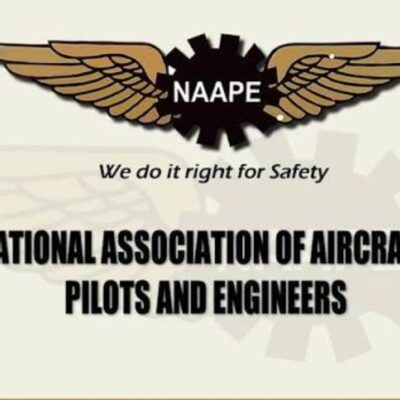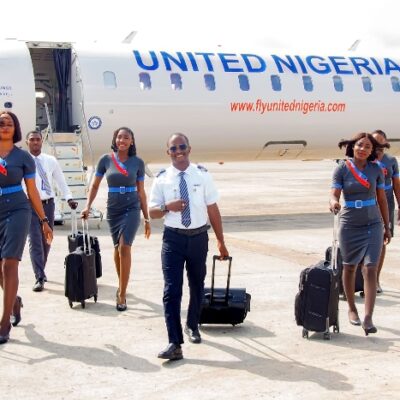
BY OLAPEJU OLUBI
In a move aimed at improving public engagement and service delivery, the Nigerian Civil Aviation Authority (NCAA) has announced plans to introduce emotional intelligence training for its personnel.
The training will focus on equipping key human interfacing staff with the skills necessary to effectively manage public interactions, particularly in high-pressure environments.
The Acting Director-General of Civil Aviation, Captain Chris Najomo, emphasised that emotional intelligence is critical to fostering teamwork, building trust, and ensuring smooth operations in the aviation industry.
According to Najomo, strong working relationships based on trust and collaboration are essential for maintaining safety standards and enhancing the overall passenger experience.
Speaking during a courtesy visit from a delegation representing Global Transport Policy in Lagos, Najomo highlighted the importance of emotional regulation and professional conduct in achieving these goals.
He explained that the upcoming training programme would help personnel develop competencies in both intrapersonal and interpersonal areas of emotional intelligence, such as self-awareness, emotional regulation, empathy, and the ability to provide feedback constructively.
“The capacity for emotional regulation is crucial in an industry like aviation, where teamwork and communication are vital for ensuring safety and efficiency,” Najomo said.
He was represented by NCAA’s Lagos Regional Manager, Barrister Bukola Teriba, who added that the agency is committed to equipping its workforce with the tools needed to navigate high-stress scenarios calmly and professionally.
The training will focus on enabling staff to manage conflict assertively, handle stress with emotional composure, and maintain a balanced perspective during negotiations.
These skills, according to Teriba, will help NCAA personnel provide better service to passengers and stakeholders while enhancing the overall effectiveness of the agency.
“As the regulatory body overseeing the aviation sector, the NCAA understands the need to stay at the forefront of innovation and human resource development,” Teriba said.
“This emotional intelligence training series is one of the key initiatives aimed at elevating the quality of service delivery, ensuring better human interaction, and fostering a more positive experience for the traveling public.”
Dr. Segun Musa, Managing Director and Chief Consultant of Global Transport Policy, praised Captain Najomo’s leadership and presented an award in recognition of his efforts to implement key reforms in the NCAA since assuming office.
The award, Musa noted, underscores Najomo’s commitment to driving positive change in the aviation sector.
Musa further explained that the emotional intelligence training is part of Global Transport Policy’s Corporate Social Responsibility (CSR) initiative, aimed at contributing to the growth and development of Nigeria’s aviation industry.
“This award is a testament to Captain Najomo’s dedication to excellence.
His leadership continues to inspire progress within the sector, and we are proud to support the NCAA in this capacity-building endeavor,” Musa stated.
The emotional intelligence training is expected to roll out soon, as the NCAA continues its efforts to enhance operational efficiency, ensure passenger safety, and maintain its status as a key player in Nigeria’s aviation industry.
Olapeju is a journalist and aviation reporter.





